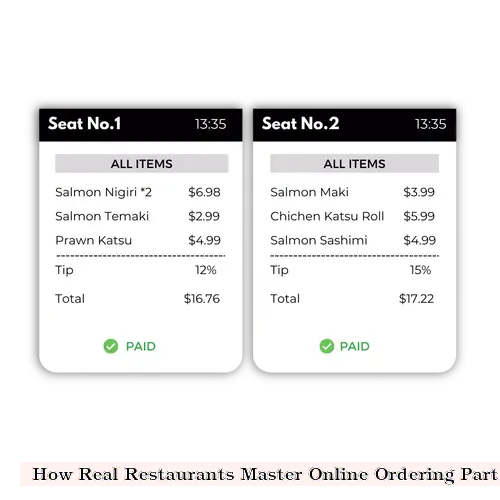

Introduction:
In today's digital age, online ordering has become an essential part of the restaurant industry. With the rise of food delivery and takeout apps, restaurants must adapt to stay competitive. This article will explore how real restaurants master online ordering, focusing on the benefits, challenges, and best practices for restaurants to succeed in the online ordering game.
Body:
I. Benefits of Online Ordering
A. Increased Revenue
1. Statistics show that online ordering can increase revenue by 15% to 20%.
2. Expanded customer base: Online ordering allows restaurants to reach customers beyond their physical location, leading to increased sales and revenue.
B. Efficient Operations
1. Streamlined ordering process: Online ordering streamlines the ordering process, reducing errors and improving efficiency.
2. Better inventory management: Real-time inventory tracking and automatic updates ensure that restaurants can manage their inventory more effectively.
C. Enhanced Customer Experience
1. Convenience: Online ordering provides customers with the convenience of ordering from their favorite restaurants from anywhere, at any time.
2. Personalization: Customers can customize their orders to their liking, and restaurants can offer tailored promotions and recommendations.
II. Challenges of Online Ordering
A. Technical Challenges
1. Integration with existing systems: Integrating online ordering systems with existing POS systems can be a significant challenge.
2. Security concerns: Restaurants must ensure that their online ordering systems are secure to protect customer data.
B. Competition
1. Increased competition: With the rise of online ordering, restaurants face increased competition from other restaurants that offer similar services.
2. Differentiation: Restaurants must find ways to differentiate themselves from their competitors, such as offering unique menu items or promotions.
III. Best Practices for Real Restaurants
A. Optimize Online Presence
1. Visible online presence: Restaurants must have an optimized website and social media presence to attract customers.
2. Easy ordering process: Restaurants should ensure that their online ordering process is user-friendly and streamlined.
B. Offer Competitive Pricing
1. Pricing strategy: Restaurants must develop a pricing strategy that is competitive with other restaurants and delivery services.
2. Promotions and discounts: Restaurants should offer promotions and discounts to incentivize customers to order online.
C. Focus on Customer Service
1. Response to customer reviews: Restaurants must respond promptly to customer reviews, both positive and negative.
2. Real-time communication: Restaurants should communicate with customers in real-time to ensure their orders are correct and on time.
Conclusion:
In conclusion, mastering online ordering is crucial for real restaurants to succeed in today's digital age. By understanding the benefits, challenges, and best practices outlined in this article, restaurants can optimize their online presence, offer competitive pricing, and focus on excellent customer service. By doing so, restaurants can stay competitive and increase their revenue in the online ordering market.
What are your thoughts on the rise of online ordering in the restaurant industry? How do you think real restaurants can best adapt to this trend and succeed in the digital age? Share your thoughts in the comments section below!
DISCLAIMER: This information is provided for general informational purposes only, and publication does not constitute an endorsement. Kwick365 does not warrant the accuracy or completeness of any information, text, graphics, links, or other items contained within this content. Kwick365 does not guarantee you will achieve any specific results if you follow any advice herein. It may be advisable for you to consult with a professional such as a lawyer, accountant, or business advisor for advice specific to your situation.
today
Copyright © 2026 Kwick365.com
Designed by KwickPOS is the best restaurant POS